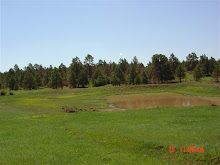Common Dreams.org: BP, US Search for New Fix to US Oil Spill
BP, US Search for New Fix to US Oil Spill
NEW ORLEANS, Louisiana - BP officials desperately searched Monday for a new fix to the enormous Gulf of Mexico oil spill after efforts to cap a gushing leak with a containment dome hit a perilous snag.
British energy giant BP, which owns the lion's share of the leaking oil and has accepted responsibility for the clean-up, is facing the jaw-dropping possibility that, failing a swift fix it has yet to deliver with a containment dome, the crisis could spiral into an even worse environmental calamity.
The White House also was scrambling to contain fallout from the massive disaster threatening to take a toll on President Barack Obama's political and energy agenda.
In Washington, Obama on Monday "will meet with a number of Cabinet members and senior staff in the White House Situation Room to review BP efforts to stop the oil leak, as well as to decide on next steps to ensure all is being done to contain the spread, mitigate the environmental impact and provide assistance to affected states," a White House statement said.
Meanwhile the Minerals Management Service (MMS) said it "continues to work with BP to explore all options that could stop or mitigate oil leaks from the damaged well."
The BP-leased Deepwater Horizon rig sank some 80 km (50 miles) southeast of Venice, Louisiana April 22, two days after an explosion that killed 11 workers.
The riser pipe that had connected the rig to the wellhead now lies fractured on the seabed a mile below, spewing out oil at a rate at some 5,000 barrels, or 210,000 gallons, a day.
Sheen from the leading edge of the slick has surrounded island nature reserves off the coast of Louisiana and tar balls have reached as far as the Alabama coast, threatening tourist beaches further east.
Sea life is being affected in a low-lying region that contains vital spawning grounds for fish, shrimp and crabs and is a major migratory stop for many species of rare birds.
The 2.4-billion-dollar Louisiana fishing industry has been slapped with a temporary ban in certain areas due to health concerns about polluted fish.
BP, facing a barrage of lawsuits and clean-up costs soaring above 10 million dollars a day, had pinned its hopes on a 98-ton concrete and steel containment box that it successfully lowered 5,000 feet (1,500 meters) down over the main leak.
But the contraption lay idle on the seabed as engineers furiously tried to figure out how to stop it clogging with ice crystals.
Still, if efforts fail to make the giant funnel system effective, there is no solid plan B to prevent potentially tens of millions of gallons of crude from causing one of the worst ever environmental catastrophes.
Untold damage is already being done by the 3.5 million gallons estimated to be in the sea so far, but the extent of that harm will rise exponentially if the only solution is a relief well that takes months to drill.
Admiral Thad Allen, head of the US Coast Guard, suggested they were considering what he called a "junk shot" to plug the main leak.
"They're actually going to take a bunch of debris, shredded up tires, golf balls and things like that and under very high pressure shoot it into the preventer itself and see if they can clog it up and stop the leak," Allen, who is leading the US government's response, told CBS television.
This could be risky as experts have warned that excessive tinkering with the blowout preventer -- a huge 450-ton valve system that should have shut off the oil -- could see crude shoot out unchecked at 12 times the current rate.
There are also fears the slick, which covers an area of about 2,000 square miles (5,200 square kilometers), could be carried around the Florida peninsula if it spreads far enough south to be picked up by a special Gulf current.
"If this gusher continues for several months, it's going to cover up the Gulf coast and it's going to get down into the loop current and that's going to take it down the Florida Keys and up the east coast of Florida," warned Florida Senator Bill Nelson. More>>>






0 comments:
Post a Comment